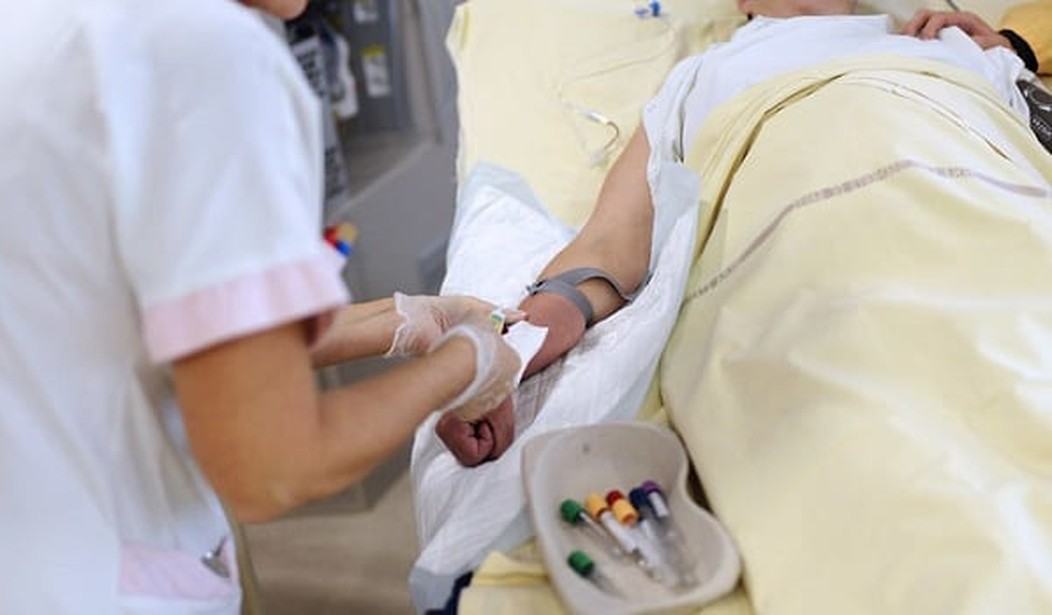 The good news is that the Netherlands is still capable of creating something other than Muslim extremists. The bad news is that what they are producing is the state sanctioned killing of the sick and elderly by medical professionals.
The good news is that the Netherlands is still capable of creating something other than Muslim extremists. The bad news is that what they are producing is the state sanctioned killing of the sick and elderly by medical professionals.
The latest official figures also revealed a 15 per cent surge in the number of euthanasia deaths from 4,188 cases in 2012 to 4,829 cases last year.
The incremental rise is consistent with a 13 per cent increase in 2012, an 18 per cent rise in 2011, 19 per cent in 2010 and 13 per cent in 2009.
The rise is also likely to confirm the fears of Dutch regulator Theo Boer who told the Daily Mail that he expected to see euthanasia cases smash the 6,000 barrier in 2014.
Overall, deaths by euthanasia, which officially account for three per cent of all deaths in the Netherlands, have increased by 151 per cent in just seven years.
Were those data applied to the United States, euthanasia would be the seventh leading cause of death, killing 80,000 people and sandwiched between diabetes and Alzheimer’s.
What had been originally portrayed as an exceedingly rare procedure now has become commonplace. It is also abundantly clear that many patients, perhaps a majority are being euthanized without actual informed consent. In the above link we reported on this study:
We don’t know the exact magnitude of involuntary euthanasia but a study by Canadian doctors of euthanasia in Belgium found that over half of the 500 cases they examined were carried out without the express consent of the “patient.”
A similar study has not been conducted in the Netherlands but will probably reveal a similar pattern. Via the Daily Mail:
The number of mentally-ill patients killed by euthanasia in Holland has trebled in the space of a year, new figures have revealed.
In 2013, a total of 42 people with ‘severe psychiatric problems’ were killed by lethal injection compared to 14 in 2012 and 13 in 2011.
…
It has also emerged that a Dutch woman in her 80s was killed by her doctors just because she did not want to live in a care home.
The case is the first to be referred to Dutch prosecutors by regulators since euthanasia was legalised in Holland 12 years ago.
And the Telegraph:
The elderly woman was suffering from back pain after a fall and was plagued by delusions caused by her dementia.
Medication for pain helped, but made her confused and, clinching the case, she had an advance directive requesting euthanasia in the event of her unbearable suffering. During a lucid moment, she was able to tell her doctor, “Yes, I want euthanasia”.
Slippery slopes are real. As our medical system faces the challenges of an aging population while dealing with the throat-punch of Obamacare, there will be increased pressure brought on state legislatures to allow euthanasia. Once the permission is granted, then we are in a position of negotiating rules. Consider that in the context of Obamacare architect Ezekiel Emanuel saying that 75 years is enough for anyone. Belgium, is allowing a psychiatrically ill prisoner to request euthanization.
A Belgian court recently granted permission for a psychiatrically ill prisoner to be euthanised. The prisoner, 50 year old Frank Van Den Bleeken, is serving a life sentence for rape and murder and has requested euthanasia due to his ‘unbearable psychological anguish’.
How, one might ask, can such a man actually give informed consent to the being killed? He can’t.
While the ‘ideal’ euthanasia case is that of a terminally ill person who is suffering terribly and wishes to die, if we assent to such a case we will soon find minor deviations from the ideal which are nonetheless almost as compelling. How could we say to someone that their chronic condition is less worthy simply because it is not terminal? How can we tell people that their psychological suffering is not as significant as physical pain? How can we deny euthanasia to anyone who firmly and passionately desires it for any reason they deem worthy?
Having a ten year ‘tradition’ of euthanasia means having ten years to consider and reconsider the most difficult scenarios, to become accustomed to the ‘norms’ and variances of the merely everyday cases, and to let that first line in the sand gradually fade away. Who would ever have thought ten years ago that Belgium would be offering euthanasia to mentally ill prisoners instead of providing psychiatric treatment? Even Distelmans, himself responsible for euthanising the deaf twins and the transsexual Nathan Verhelst, has expressed concern, stating: ‘Surely, we are not going to carry out euthanasia because we can’t offer an alternative?’ Apparently they are.
As we observe this Respect Life Sunday, we need to keep in mind that just as Joseph Cardinal Bernadin described life as a “seamless garment,” so, too, is disrespect for life. Abortion cannot survive in a society that does not have euthanasia because they are part of the same philosophy that doesn’t see life as precious and something to be cherished but rather something that is only of value if someone else decides that is the case.













Join the conversation as a VIP Member